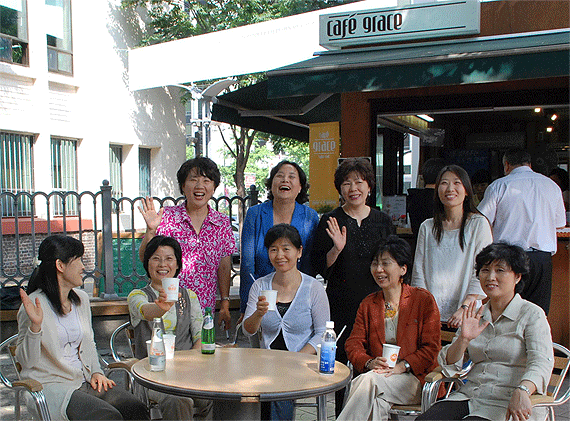
Home | History | Projects | Morning Calm | Links | Contact Us |
|
House of Sharing A Commitment to the Poor in the Anglican Church of Korea |
|
||
|
|
The rapid development and expansion of industrialisation
in South Korea between 1960 and 1980, resulted in a vast movement
of agricultural workers from the countryside to the fringe of
the industrial cities. Life in the slums should not be envisaged
as that which existed in the Victorian slums of industrial Revolution
England. Crime rates are no higher than elsewhere in other areas,
there is no fear involved in walking the streets and a
sense of community and mutual support very strong. The Churches were present in the slums, but by and large they confined their role to providing for the spiritual needs of the inhabitants. The Anglican Church had initiated a number of social programmes which met some of the needs but by no means all. In 1985 Anglican Young People and Theological
students gathered together resolved to start something which
would make a direct impact on the social conditions affecting
the lives of the Minjung or Poorest of the poor. They called
the initiative 'The Movement of Sharing.' Seven houses of Sharing, sited in the three
Anglican Diocese, now operate. Each supports a number
of programmes and facilities aimed at meeting the specifid social
needs of the districts in which they are situated. From a small
poverty, such as the protype, House of Sharing can now mean
a complex which supports a number of facilities and varied programmes.
In addition there are Mother's School for the education of illiterate women, who are generally eager to take advantage of the opportunity. Self Support Centres where the unemployed are offered training and given the opportunity to work together. Underpinning of the work of the many social
programmes is the faith of the Christian Comunity. In the early
days many involved in the Sharing Movement saw it only in terms
of socio-economic advancement through direct democratic action.
Gradually they began to realise the importance of the faith
in the way they tackled the many social ills with which they
had to cope. As the work had developed so has the need for greater funding. In this the Korean Government and Local Authorities have some part. Whereas in the beginning many parishes appeared indifferent to the Movement now the majority of them find some funds from their own resources. Like all the worthwhile causes, there is alway a need for more from whatever source! (This is an article written by Fr Michael
Davenport for the Morning Calm No 28 February 2002) |
||
|
|





